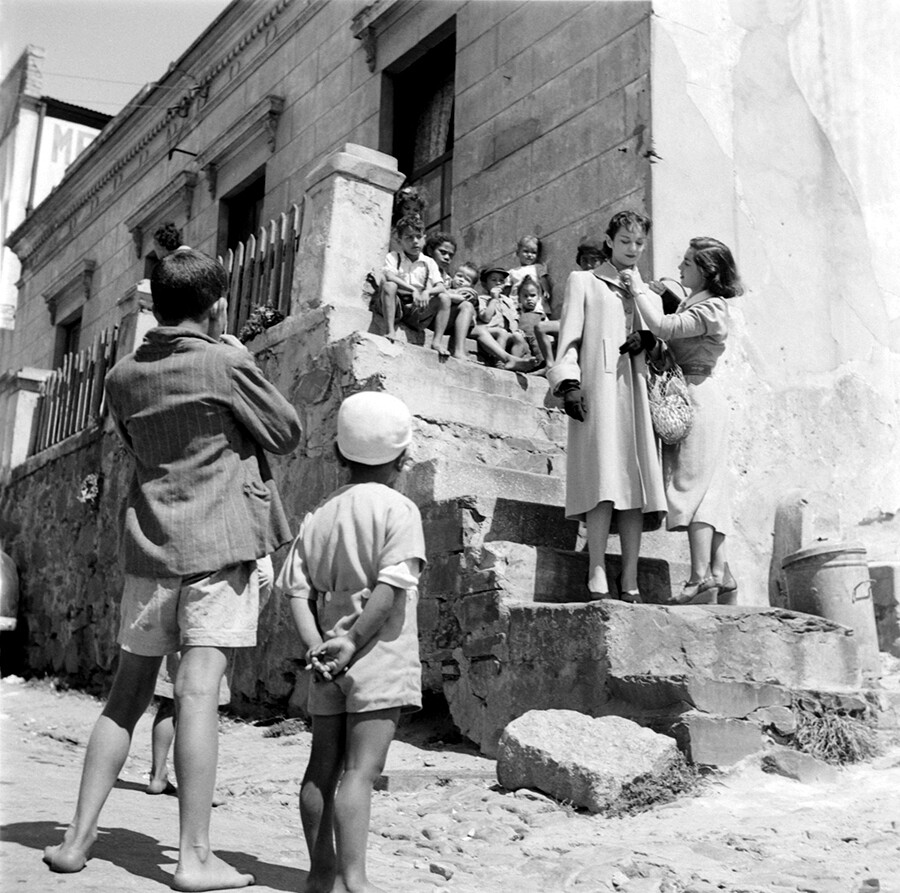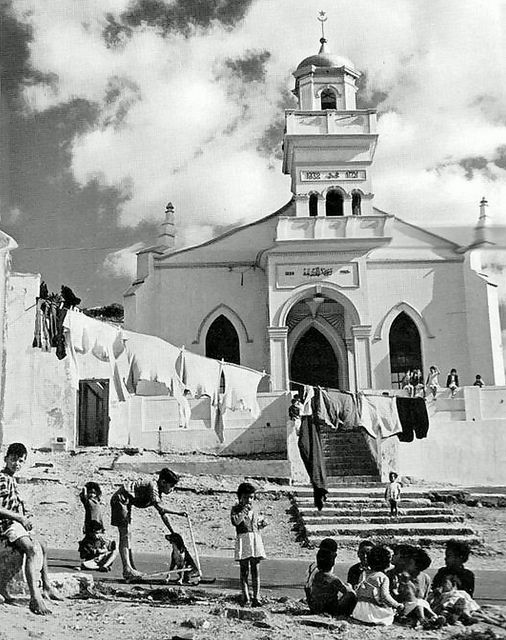Discovering the Vibrant Heart of Cape Town City Centre and Bo-Kaap
Table of Contents

Introduction
Brief history of Bokaap
Bokaap, a historic neighbourhood in Cape Town, South Africa, traces its roots back to the 16th century when it was primarily inhabited by slaves and freedmen from Southeast Asia and other parts of Africa. Today, Bokaap is a vibrant and diverse area known for its brightly coloured houses, cobblestone streets, and rich cultural heritage.
Nestled at the foot of Signal Hill, Bokaap is a vibrant and historically significant neighbourhood in Cape Town, South Africa. With its colourful houses, cobblestone streets, and rich heritage, Bokaap is an enchanting destination that captures the essence of Cape Town’s multicultural past. Once known as the Malay Quarter, this area has been home to the Cape Malay community since the 18th century, and their influence is evident in Bokaap’s unique charm and character.
Geographical location and size
Located at the foot of Signal Hill, Bokaap covers approximately 1.5 square kilometres and is conveniently situated within walking distance of Cape Town’s city centre.
Bokaap Demographics
Bokaap is home to a close-knit community primarily of Cape Malay descent, with a population of around 6,000 residents.
The diverse community of Bo-Kaap traces its roots back to the 16th and 17th centuries when the Dutch East India Company brought slaves and political exiles from Southeast Asia, Madagascar, and other parts of Africa to the Cape. Over time, these communities intermingled with the local population, resulting in the formation of the Cape Malay culture that is synonymous with Bo-Kaap today.
Bo-Kaap is home to a close-knit community of around 6,000 residents. Despite its relatively small size, the area boasts a rich cultural tapestry that embraces various ethnic backgrounds, religions, and traditions. The majority of Bo-Kaap residents are Muslim, and the neighbourhood is known for its beautiful mosques, including the Auwal Mosque, which is the oldest mosque in South Africa.
Cape Malay culture is at the heart of Bo-Kaap, and the residents take great pride in their heritage. The neighbourhood is known for its vibrant celebrations, especially during the month of Ramadan, when the streets come alive with the aroma of traditional Cape Malay cuisine and the sounds of prayer and festivities.

The residents of Bo-Kaap are known for their warmth and hospitality, and visitors to the area will often find themselves engaged in conversations with locals who are eager to share their stories and knowledge about the neighbourhood’s history and heritage. The community spirit is evident in Bo-Kaap’s various social clubs, organizations, and initiatives that aim to preserve and celebrate the area’s unique identity.
The demographics of Bo-Kaap have evolved over time, and in recent years, the neighbourhood has seen an influx of young professionals and creatives who are drawn to its unique charm and convenient location close to Cape Town’s city centre. This has led to a subtle shift in the area’s dynamics, with a blend of old and new influences shaping its vibrant culture and identity.
Attractions and Landmarks
Bokaap is a treasure trove of attractions and landmarks that showcase its diverse history and cultural significance. The iconic pastel-coloured houses, some dating back to the 18th century, create a picturesque setting that draws photographers and tourists alike. Don’t miss out on visiting the Bokaap Museum, housed in one of the area’s oldest buildings, which offers insights into the local community’s history and culture.
For a deeper understanding of Bokaap’s Islamic heritage, pay a visit to the Auwal Mosque, the oldest mosque in South Africa, built in 1794. As you explore the narrow streets, you’ll come across several other mosques, each with its unique architectural features.
Historical landmarks
Bokaap boasts several significant historical landmarks, including monuments such as the Auwal Mosque, the oldest mosque in South Africa. The neighbourhood is also home to the Bokaap Museum, which showcases the area’s history and heritage through exhibits highlighting its unique architectural styles and vibrant culture. Additionally, Bokaap features various heritage sites, such as the revitalized Old Biscuit Mill, now a bustling market and creative hub.
Natural attractions
The picturesque neighbourhood offers natural attractions such as Signal Hill, which provides breathtaking views of Cape Town, Table Mountain, and the Atlantic Ocean. Nearby Lion’s Head offers adventurous hiking trails and panoramic views. Additionally, the historic Company’s Garden, a short walk from Bokaap, offers a tranquil oasis amidst the bustling city.
Cultural attractions
Bokaap’s rich cultural scene includes art galleries, theatres, and performance venues showcasing local talent. The area also hosts several festivals and events throughout the year, celebrating the community’s diverse heritage and traditions.
Bokaap Local Cuisine and Dining
Bokaap is renowned for its mouth-watering Cape Malay cuisine, a fusion of Malaysian, Indonesian, and African flavours. Treat your taste buds to traditional dishes like bobotie, a spiced minced meat bake topped with egg custard, or savor some fragrant Cape Malay curry. Sample the local favourite, koeksisters – a sweet, syrupy doughnut – or indulge in a hearty roti roll at one of the many family-run eateries.
To experience authentic home cooking, consider joining a Cape Malay cooking class or booking a meal at a local’s home. This not only offers a unique dining experience but also supports the local community.
Bokaap is a food lover’s paradise, offering traditional Cape Malay dishes such as fragrant curries, bobotie, and sweet koeksisters. Popular restaurants and cafes, like Biesmiellah and Batavia Café, serve authentic local cuisine in cosy settings. Additionally, food markets and street food vendors provide a taste of the neighbourhood’s culinary delights.
Accommodation Options
Visitors can choose from a variety of accommodation options in Bokaap, including boutique hotels like Rouge on Rose, which combines contemporary design with traditional Cape Malay elements. Bed and breakfasts such as Rose Corner offer warm and inviting atmospheres, while vacation rentals and hostels provide budget-friendly options for travellers.
Bokaap’s central location makes it an ideal base for exploring Cape Town. A variety of accommodation options are available, ranging from boutique hotels that celebrate the area’s heritage to charming guesthouses and Airbnb rentals. Staying in Bokaap allows visitors to fully immerse themselves in the neighbourhood’s vibrant atmosphere and warm hospitality.
Transportation and Accessibility
Bokaap is easily accessible from various parts of Cape Town. It’s within walking distance of the city centre and the bustling V&A Waterfront.
Bokaap is well-connected by road and rail, with easy access to major highways and public transportation, including buses and the MyCiTi rapid transit system. The neighbourhood also boasts bike and pedestrian-friendly routes, allowing visitors to explore its charming streets on foot or by bicycle.
Shopping and Entertainment
Wale Street, Bokaap’s main thoroughfare, is home to several local shops selling traditional Cape Malay crafts, spices, and souvenirs. The nearby Bree Street and Long Street offer a plethora of boutiques, galleries, and vintage stores, catering to a variety of tastes and budgets. In the evenings, explore the vibrant nightlife scene at nearby bars, clubs, and live music venues.
From shopping centres and markets to local boutiques and specialty shops, Bokaap offers a unique shopping experience. Entertainment venues and nightlife spots provide opportunities for socializing and enjoying live performances in this lively neighbourhood.
Community and Lifestyle
Bokaap’s close-knit community is renowned for its warmth and hospitality. The neighbourhood hosts various cultural events throughout the year, such as the annual Bokaap Street Iftar during Ramadan or the lively Tweede Nuwe Jaar celebrations in January. These events not only showcase the community’s rich traditions but also provide an opportunity for visitors to experience the local culture firsthand.
Bokaap is home to a strong community spirit, with excellent education and healthcare facilities available for residents. The area also offers sports and recreational activities, as well as social clubs and organizations that promote a sense of belonging and camaraderie.
Local Economy and Business Environment
As a popular tourist destination, Bokaap contributes significantly to Cape Town’s economy through its thriving hospitality and tourism sectors. The neighbourhood is also home to several small businesses and entrepreneurs who benefit from the influx of tourists and the strong sense of community. Efforts are being made to preserve Bokaap’s heritage and support local businesses, ensuring the area remains an authentic and vibrant part of Cape Town.
Bokaap’s local economy is supported by various industries and employers, including those in the creative, hospitality, and retail sectors. The neighbourhood benefits from business development initiatives and support, with future growth and development plans aimed at preserving its unique heritage while fostering economic growth.
Conclusion
Bokaap is a must-visit neighbourhood for anyone looking to experience the rich tapestry of cultures, history, and flavours that make Cape Town such a fascinating city. From its iconic colourful houses and historic mosques to the tantalizing Cape Malay cuisine and welcoming community, Bokaap offers a unique and unforgettable experience for travellers and locals alike. So, whether you’re planning a short visit or an extended stay, be sure to include Bokaap in your Cape Town itinerary and let yourself be captivated by its irresistible charm.
Summary of the Bokaap’s highlights
Bokaap is a captivating neighbourhood that showcases the best of Cape Town’s diverse history, culture, and natural beauty. From its historic landmarks and vibrant culinary scene to its lively arts and entertainment offerings, Bokaap is a must-visit destination for travellers and locals alike.
Reasons to visit or live in the town
Visitors to Bokaap will find themselves immersed in a rich tapestry of cultures and traditions, with ample opportunities to explore its unique architecture, indulge in delectable cuisine, and engage with the friendly and welcoming community. For those considering living in Bokaap, the neighbourhood offers an unparalleled quality of life, combining a strong sense of community with easy access to the amenities of Cape Town’s city centre.
Final thoughts and Bokaap recommendations
Bokaap is a neighbourhood that truly represents the heart and soul of Cape Town. With its rich history, colourful streets, and warm community, it is an unforgettable destination that should not be missed. Whether you’re visiting for a day or planning an extended stay, Bokaap promises an experience that will leave a lasting impression.
